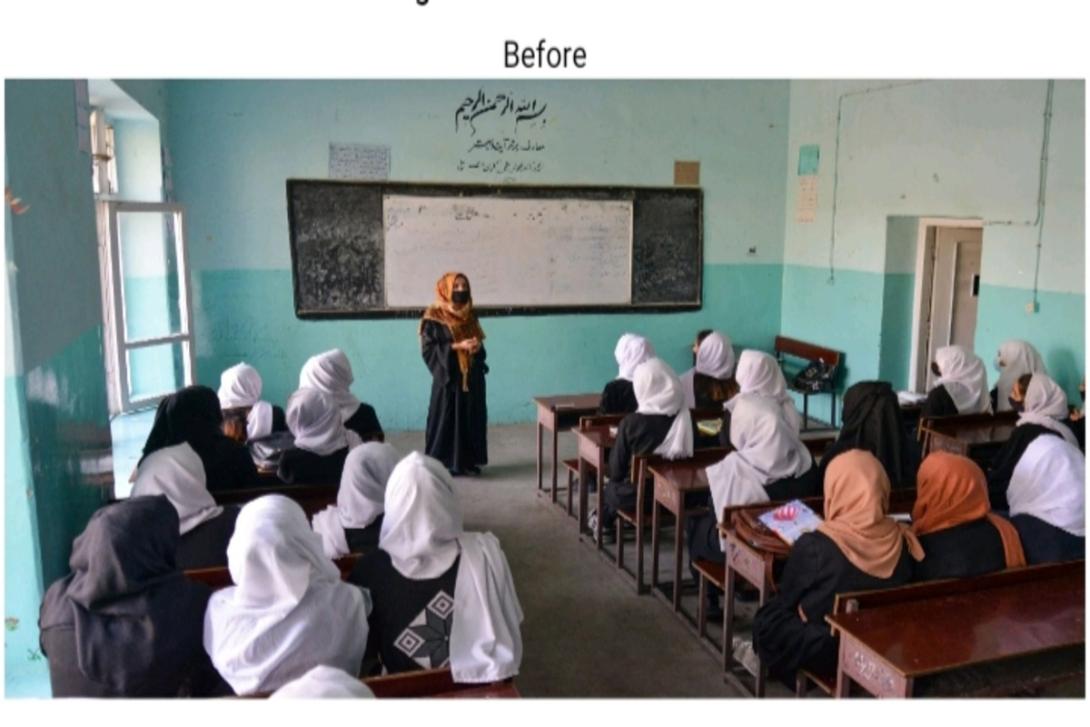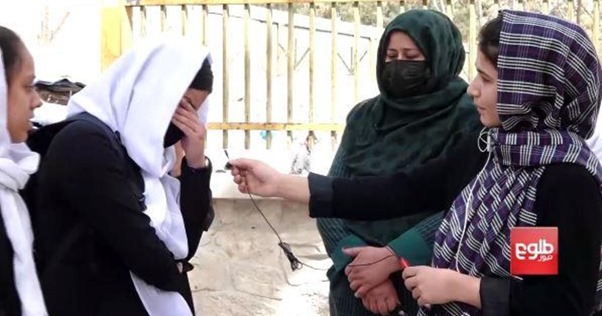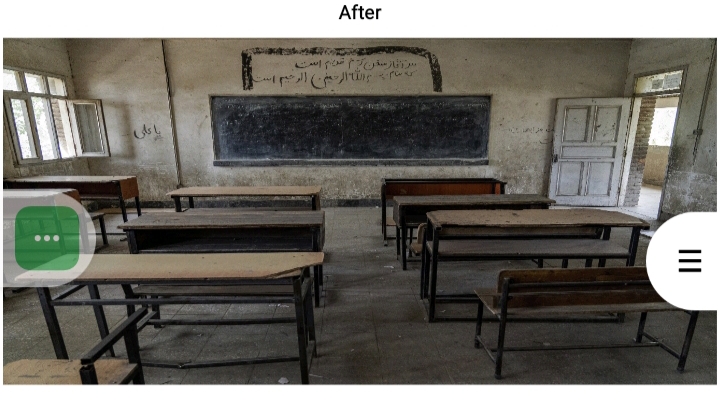
Why have the Taliban imposed a ban on girls' education, obliterating their dreams? Why did these girls, once hopeful of continuing their studies, suddenly find themselves turned away from school at gunpoint?
The Importance of Education in Islam
Islam places significant emphasis on education for both men and women, highlighting it as a divine gift and an essential right. Allah’s command regarding knowledge is clear and universal:
"Allah taught man what he did not know." (Surah Al-Alaq, 96:5)
This Quranic verse emphasizes that the ability to gain knowledge is a unique and invaluable gift bestowed upon humans. Knowledge, therefore, is not exclusive to any gender, and it is through learning that individuals fulfill their purpose on Earth.
The Prophet Muhammad (PBUH) reinforced the importance of education for both men and women. He said:
“Seeking knowledge is an obligation upon every Muslim (man and woman).” (Sunan Ibn Majah)
This Hadith highlights that acquiring knowledge is not optional but a religious duty for every Muslim, regardless of gender. Furthermore, the Prophet (PBUH) emphasized the significance of educating women through the example of a man who educates his female servant:
“If a man has a slave girl, educates her, teaches her good manners, and then frees her and marries her, he will have a double reward.” (Sahih Bukhari)
This profound statement underscores the high value placed on women’s education and how it can elevate an individual's status in the eyes of Allah.
Islamic scholars have consistently affirmed this stance. Ibn Hazm, a prominent Islamic thinker, wrote extensively on the obligation of both men and women to seek knowledge. He stressed:
“It is obligatory for every person, as much as possible, to strive to understand what Allah demands of them.” (الإحكام فی أصول الأحكام)
This obligation is so crucial that, as Ibn Hazm further elaborated, “Men and women, whether free or enslaved, have no excuse to remain ignorant of these essential matters. They must begin learning as soon as they reach maturity or convert to Islam.” (الإحكام فی أصول الأحكام)
He went on to argue that if people live in a place without access to religious education, it is their duty to either travel to acquire knowledge or invite a scholar to teach them. This mandate applies equally to men and women, emphasizing the universal nature of the pursuit of knowledge.
In the الفقيه والمتفقه, Imam Al-Khatib Al-Baghdadi devoted an entire chapter to encourage men to educate their women and children, citing several Prophetic traditions that affirm the importance of such responsibilities. He stresses that the teachings of the Quran and Hadith clearly contradict any notion that restricts education to men alone.
Thus, Islam provides no basis for discrimination between genders when it comes to education. Women are entrusted with the same responsibilities as men in fulfilling their role as Allah’s vicegerents on Earth. Both men and women must acquire the knowledge necessary to perform their duties and succeed in this world and the hereafter. Any attempt to restrict women's access to education is contrary to the spirit of Islam.
Taliban Actions: A Contradiction of Islamic Teachings
A young girl from northern Afghanistan, in her dawn prayers, praised Allah for the opportunity to continue her studies. Similarly, a middle-class student from a remote province in southeast Afghanistan was eager to see her classmates after a year-long break. Yet, on the very day she walked to school, she was denied entry, leaving her shattered. What justification does the Taliban offer for such actions, especially under Sharia law?
Introduction: Are Women Really Given Respect?
Women, throughout history, have been considered delicate beings, granted special respect by both religion and universal norms. If Islam and international law support women's rights to work, study, and practice individual freedoms, then why are these rights denied in societies like Afghanistan? Why are women prevented from accessing education and work, and how does the Taliban reconcile this with their strict interpretation of Islamic mandates?
The Taliban, a military organization founded in the early 1990s, had ruled Afghanistan until 2001. During that time, women were banned from attending school or working, forced to wear veils, and restricted from traveling without a male guardian. When the Taliban’s regime fell in December 2001, new leadership and a revised constitution brought hope. Women gained access to education and work, especially in urban areas. So, why, when the Taliban regained power in 2021, were these hard-won freedoms immediately taken away?

Taliban Takeover: Why Ban Girls' Education Again?
What changed between 2001 and 2021? The Taliban, after a 20-year insurgency, retook control of Afghanistan in August 2021. By March 2022, the regime banned girls from attending school beyond the sixth grade, and by December 2022, women were also banned from universities. What explains this decision? Why did thousands of female students, hopeful on the first day of school, find the gates locked and armed guards turning them away?
The Taliban’s inconsistent statements only raise further questions. Abdul Baqi Haqqani, the Minister of Higher Education, once claimed that Afghan citizens would continue their education under Sharia law. Yet, Taliban spokesperson Zabiullah Mujahid later emphasized that the group would uphold women’s rights, but only within their interpretation of Islamic mandates. What caused this internal division within Taliban leadership, and how does this reflect their stance on female education?
The Socio-Economic Impact: What Are the Consequences?
What economic and social toll will these policies take on Afghanistan? When donors hesitate to provide aid to a country where half the population is denied basic rights, how will Afghanistan thrive? Women, previously active in sectors like agriculture, business, and manufacturing, contributed immensely to the nation's economy. With an estimated 57,000 women-owned businesses running before the Taliban's return, what happens when women are excluded from the workforce?
If the education system remains closed to women, how will Afghanistan combat poverty? Studies show that countries with gender parity in education and employment experience more economic growth. Why, then, is the Taliban imposing restrictions that only deepen poverty and economic instability? As Shakila, a former government worker, explains, her family’s economic status plummeted after she lost her job. Why would a government knowingly undermine the economic stability of its citizens?
Women’s Role in Economic Growth: Why Marginalize Them?
Preventing women from working not only devastates their families but also hampers national economic growth. Research consistently demonstrates that GDP rises when women participate in the workforce at rates similar to men. If companies with more female board members perform better, why does the Taliban persist in excluding women from decision-making roles?
According to UN estimates, the economic cost of banning women from work in Afghanistan is around $1 billion annually, roughly 5% of the country's GDP. Meanwhile, the World Bank reports that the exclusion of women from education and employment has caused a 6.5% drop in the service sector. How can the Taliban ignore such clear evidence that gender equality benefits the economy?
What Does the Future Hold for Afghan Girls?
If the ban on girls' education and employment becomes permanent, what future awaits Afghanistan? Many families are already marrying off their daughters to shift financial burdens onto husbands. How does this align with the values of dignity and respect that Islam, international law, and even the Taliban leadership claim to uphold?
In interviews with Afghan girls, the overwhelming emotions expressed were anger, despair, and a sense of betrayal. "All winter, I prepared for my final year in high school," one Kabul student said, only to be told she could not return. If women and girls had been adhering to the Taliban's dress codes, why were they still denied their basic right to an education? Thousands of students now wonder whether they will ever pursue their dreams. Can Afghanistan thrive with half of its population silenced and oppressed?

The Shariah Perspective: Does the Taliban Interpretation Hold?
Does the Taliban’s interpretation of Shariah align with the teachings of the Quran? The Quran encourages both men and women to gain knowledge and condemns ignorance. It emphasizes education over 800 times, urging believers to reflect and deliberate in their pursuit of knowledge. Islamic scholars, including the Imam of al-Azhar, have repeatedly stated that preventing women from public roles is a major sin. How, then, does the Taliban justify their policies as Islamic?
No other Muslim country prohibits girls from education or work under Sharia law. So why does the Taliban deviate from this global norm? Their perspective seems rooted in a 19th-century tribal interpretation of Islamic law, which developed under British rule in Islamic territories like the Indian subcontinent. How can such a narrow and restrictive view continue to dominate in the 21st century?
Conclusion: What’s the Justification?
Why does the Taliban persist in marginalizing women and preventing them from contributing to society? The detrimental effects on Afghanistan’s economy, education system, and global standing are clear. Can the Taliban continue to uphold these policies under the guise of religion, or will they eventually yield to the overwhelming evidence that gender equality benefits everyone? What will it take for Afghan women and girls to reclaim their rights?
References
- Freshta Barakzai, 2023, Women Education under the Taliban, Global History Dialogues.
- Belqis Ahmadi and Hodei Sultan, 2023, Taking a Terrible Toll: The Taliban Education Ban, United States Institute of Peace.
- Belqis Ahmadi, 2022, Taliban Ban on Girl Education in Afghanistan, United States Institute of Peace.
- Riazat Butt, 2023, Two Years Ago Taliban Banned Schools for Girls in Afghanistan, Associated Press.
- Matiullah Qazi Zada, 2024, Impact of Taliban on Women’s Work and Education, Development Policy Centre.
- عبدالقهار سروری و محمد زمان حامدی، تحلیل گفتمانهای جهان اسلام درباره ممنوعیت تحصیل زنان، دانشگاه مالی مالیزیا
- محمد مهدی فردین، جهانی شدن تعیلیم و تربیه و جایگاه افغانستان، هشت صبح
- یوسفی، طالبانیسم و پیوند وثیق آن با زن ستیزی، هشت صبح


